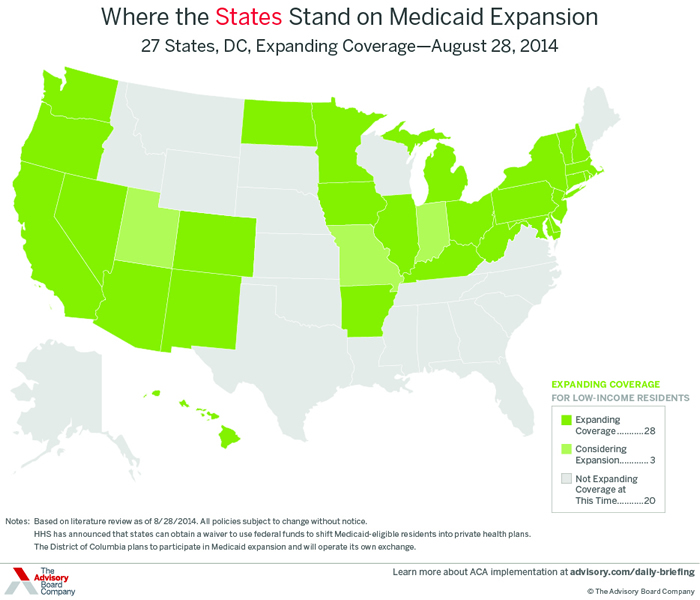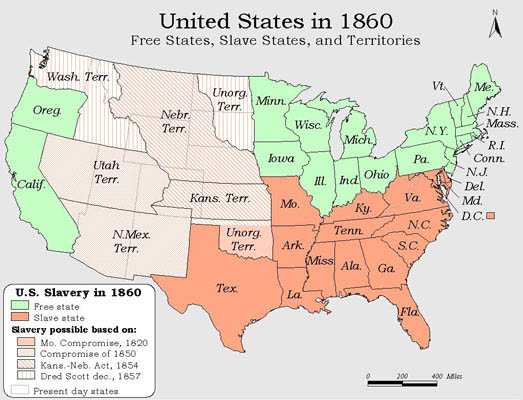One of the tenets of the Affordable Care Act struck down by the Supreme Court was the States’ mandated expansion of Medicaid. This segment of the legislation was seen as an “over-reach” of states rights. The choice for expansion was returned to the individual states.
A map showing the states’ expansion of Medicaid has an interesting historic corollary. (Figure 1) A quick view of the map shows a complete block of southern states that have chosen not to expand their Medicaid system. Two notable exceptions to this southern trend are Arkansas and Kentucky. These two states have had a Democrat governorship with early support for the Affordable Care Act.

An examination of the second map, (Figure 2), is an 1860 map of the U.S. depicting “free states” and “slave states”.

Excepting the large areas of the 1860 map where territories had not yet become states, the two maps have a lot in common.
Making sense of today’s map in relation to the 1860 map is probably more a testament to the 10th amendment to the constitution than the acceptance of slavery. The fervor leading to the succession of states from the union was centered on the ability to escape onerous legislation imposed by the central government. Although the 10th amendment become law many years later, in summary it states that the “federal government possesses only those powers delegated to it by the states or the people.”
The very states that created the confederacy still hold dear the concept of federalism. This political concept maintains that sovereignty must be shared governance between the states and the central government. It is too early to predict the budgetary results for states expanding Medicaid versus those that didn’t, but it is clear that Federal mandates imposed on southern states will never be met with a warm embrace.


